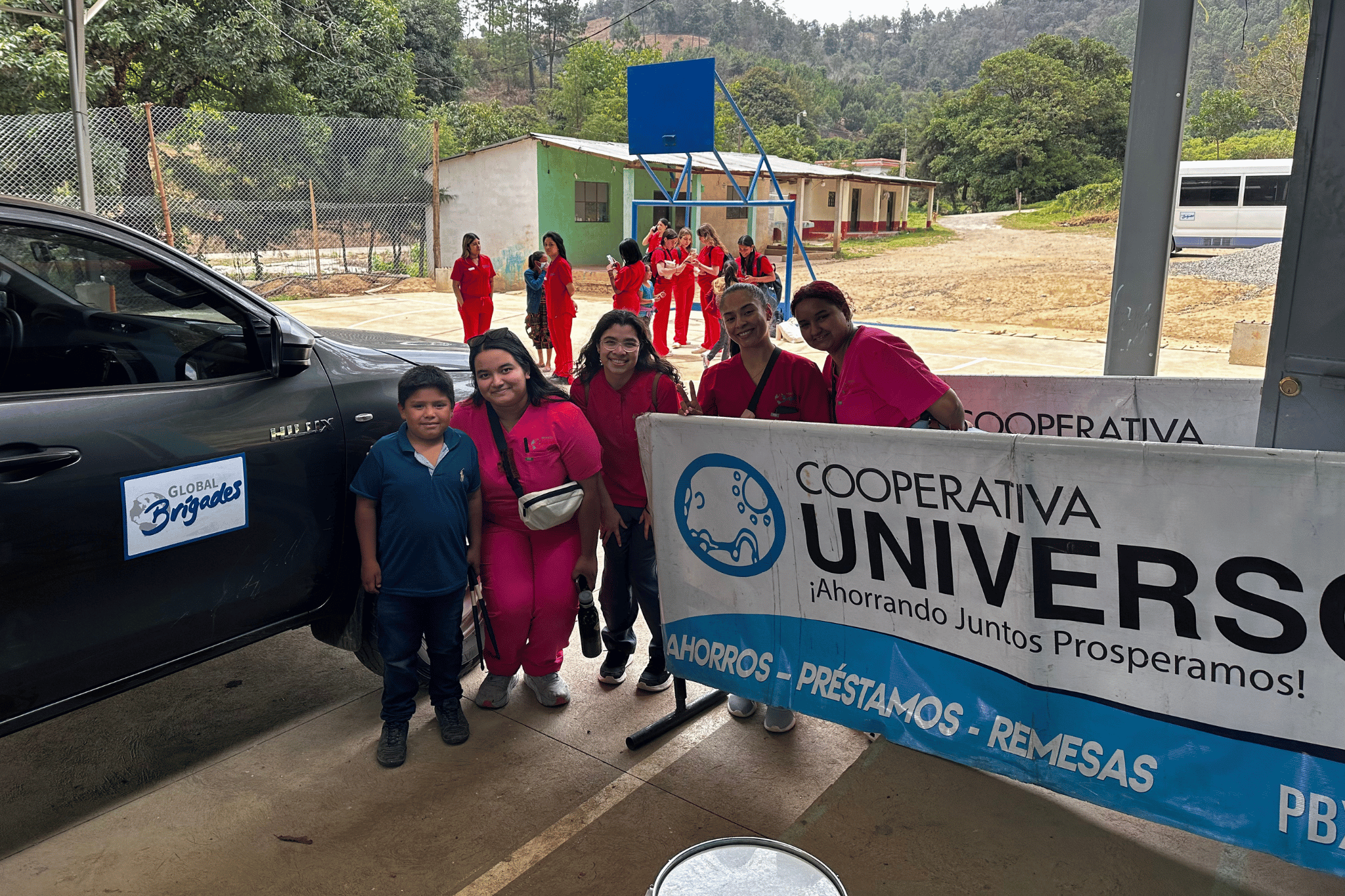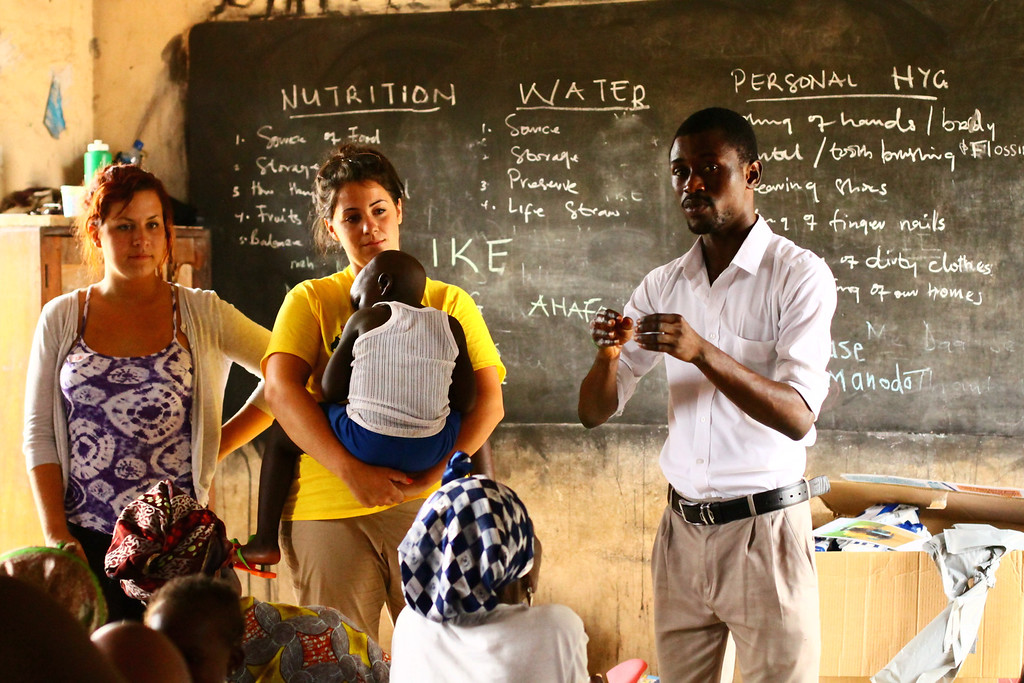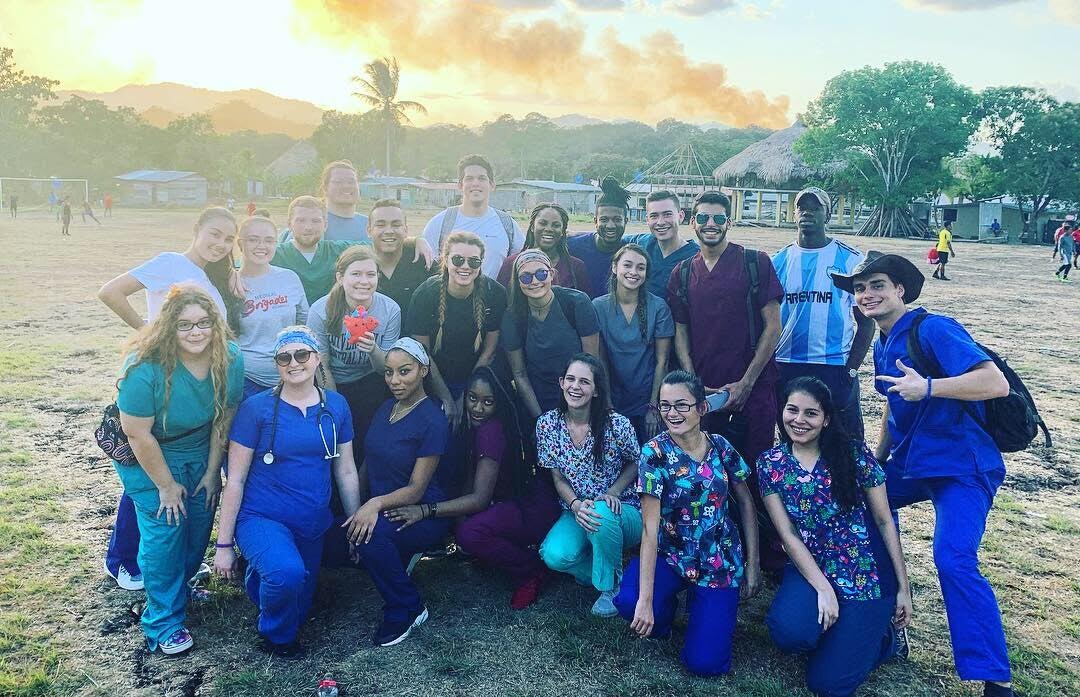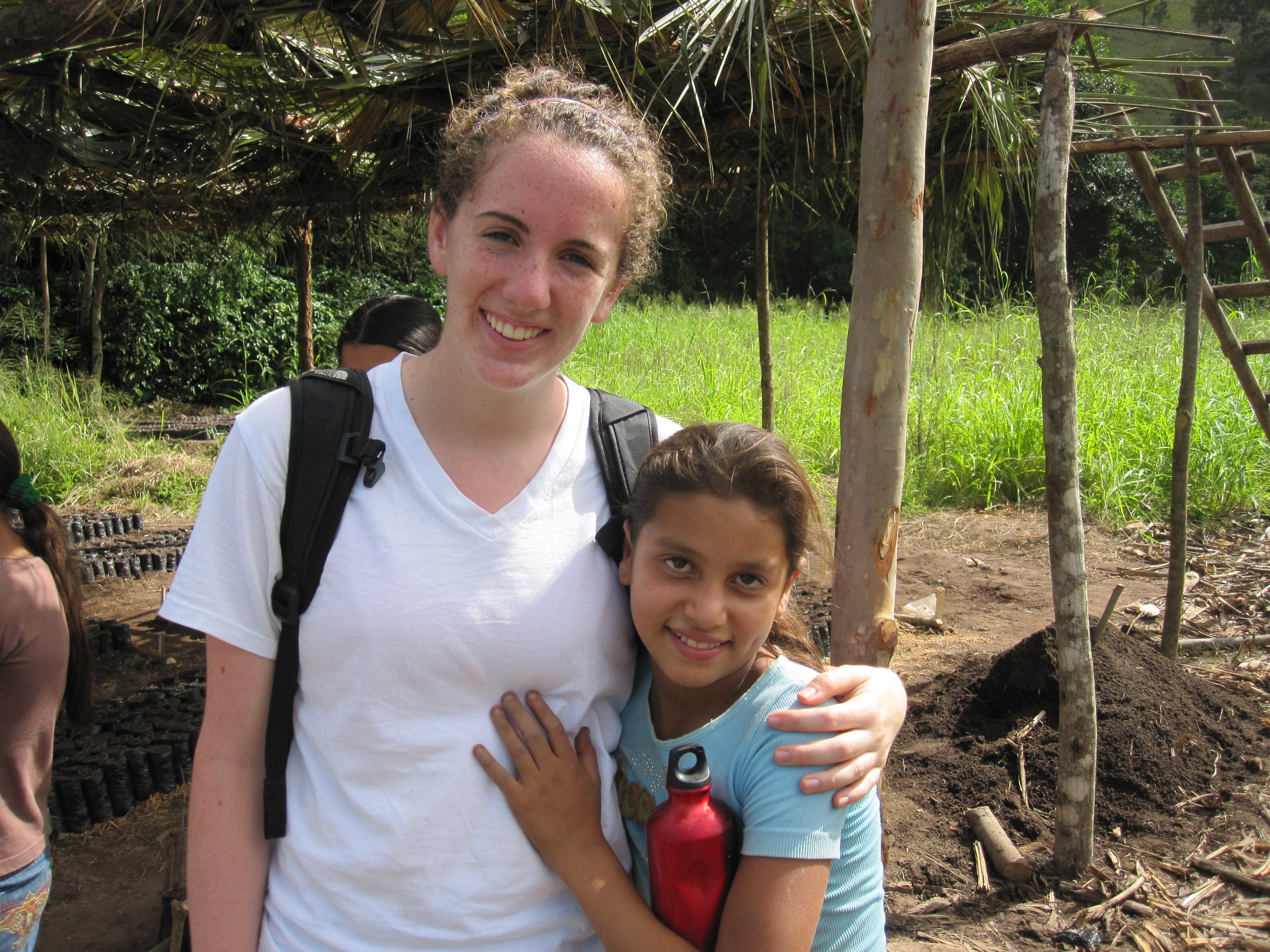Sustainable development is a model of health, safety, and economic development that balances the needs of today while preparing for a better future.
As sustainability is essential to our work at Global Brigades, we stay up-to-date on global goals regarding issues like climate change, economic growth, and access to healthcare. While perfect sustainability isn’t realistic, changes can be made to achieve a more sustainable future.
It starts with understanding what ideal sustainable development looks like.
What is Sustainable Development?
In humanitarian work, sustainable development meets the needs of the present without compromising the ability of future generations to meet their own needs.
The origins of sustainable development go back hundreds of years. In 1798, Thomas Malthus published An Essay on the Principle of Population to warn about the challenges of population growth in relation to global resources. His pessimistic fixes, embraced by supporters who called themselves Neo-Malthusians, focused on global human population planning to reduce potential threats like famine and conflict.
The idea behind sustainability as a practice grew with Our Common Future, or the 1987 Brundtland Report published by the United Nations. The report emphasized how important it was to view sustainable development from a global perspective. We can’t approach these goals in an ethnocentric manner.
The concept today encompasses issues like responsible resource management, sustainable economic growth, fair social policies, and conservation practices. Efforts since, like the Paris Agreement on Climate Change or the Pacific Roadmap for Sustainable Development, tackle the 3 primary areas of focus in an interconnected way.
3 Primary Focuses
Target goals for sustainable development can vary depending on the most pressing needs of a country, but they generally fall under 3 main focus areas:
- Economic: Sustainable economic development supports improved living standards and systems that address extreme poverty. This includes access to meaningful, well-paying work and diverse wealth-building opportunities. A community with support and resources for burgeoning entrepreneurs is often a community that will become more self-sustaining as time goes on.
- Environmental: Healthy economies shouldn’t come at the expense of environmental degradation. Environmental sustainability safeguards ecosystems and natural resources, addresses environmental challenges, and promotes responsible consumption. For instance, supporting more equitable access to clean water falls within this focus area.
- Social: Human rights and quality-of-life goals target reduced inequality and improved social inclusion. Social needs can include access to diverse educational opportunities, basic infrastructure, and progress toward gender equality. By partnering with communities to create sustainable health systems in places that previously had limited access to healthcare, we’re addressing this focus area of sustainable development.
Other examples of sustainable development include efforts to combat desertification in countries in Asia, such as China, and clean water and food security initiatives in Africa. In India, clean energy has been a big focus. After years of reliance on fossil fuels, the country has embraced global goals to combat climate change by boosting access to renewable energy sources.
At Global Medical Brigades, we create sustainable health systems. As the largest student-led movement for global health, we’re well-versed in working toward long-term change in our partner communities.
The United Nations’ Sustainable Development Goals
In 2015, the United Nations Member States adopted a series of global impact goals crafted by their General Assembly as part of their 2030 Agenda for Sustainable Development. These 17 Sustainable Development Goals (SDGs) are a shared blueprint for international cooperation.
Here is a brief overview of all 17 SDGs:
- No Poverty: Over 700 million people live in extreme poverty around the world. The goal is inclusive economic growth that touches all social classes.
- Zero Hunger: Sustainable agriculture and support for local farmers, reduced food waste, and regional healthcare systems addressing malnourishment are important.
- Good Health and Well-Being: Vaccination programs, clean water, and holistic care models improve communities' overall health. This is a key tenet of Medical Brigades.
- Quality Education: Equitable educational opportunities promote learning for all in diverse fields while supporting cultural preservation.
- Gender Equality: Programs that empower women and girls are part of the foundation for a peaceful and prosperous world.
- Clean Water and Sanitation: Over 40% of Earth’s population is affected by water scarcity. Community health starts with access to clean drinking water.
- Affordable and Clean Energy: Billions around the globe lack access to clean cooking methods and affordable, modern energy sources.
- Decent Work and Economic Growth: A robust civil society has access to jobs, training, and conditions supporting growth in both.
- Industry, Innovation, and Infrastructure: Structural engineering projects support GDP growth, resiliency, and functionality beyond the community level.
- Reduced Inequalities: Income inequality is felt most acutely in our most marginalized communities. Investments in healthcare, education, and social protection can help.
- Sustainable Cities and Communities: This goal speaks to access to transportation, housing, and clean energy initiatives that tackle pollution and fossil fuels.
- Responsible Consumption and Production: This goal includes measures to ensure responsible supply chains and reduced waste at the consumer level.
- Climate Action: Global warming and climate change affect everyone across all contexts. More must be done to reach emissions targets, including global carbon offsetting.
- Life Below Water: Our waters need to be carefully managed to protect our marine populations and maintain access to healthy water sources.
- Life on Land: Sustainable use of our forests considers issues like biodiversity loss, desertification, and land degradation.
- Peace, Justice, and Strong Institutions: This goal addresses challenges like civil unrest and global conflicts. All people should feel safe where they are.
- Partnerships: It’s all connected. Sustainability challenges are reduced when countries work together.
How can one person contribute to achieving sustainable development goals? You can do your part in supporting sustainable development by educating yourself on more sustainable practices in daily life.
That can be as simple as reducing waste, conserving energy and water when possible, using public transit, and advocating for policy changes. It can also look like participating in community initiatives or volunteering with groups that work toward sustainability on a global scale.
Making a Global Impact
Students and individual volunteers can drive sustainability by participating in advocacy work on the local level or signing up for international opportunities through quality organizations.
At Global Medical Brigades, we focus less on the future we want and more on working with our partners to identify the futures they want. Focus areas behind sustainability can change over time. We focus on projects that improve our partners’ overall health and economic welfare.
This is sustainability on the ground level, and it can be incredibly impactful.
Are you a pre-med student or interested in global healthcare? Learn more about our work and joining a Medical Brigade. Become a part of global change.







